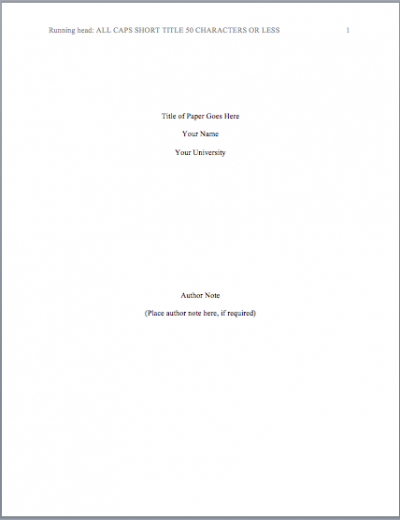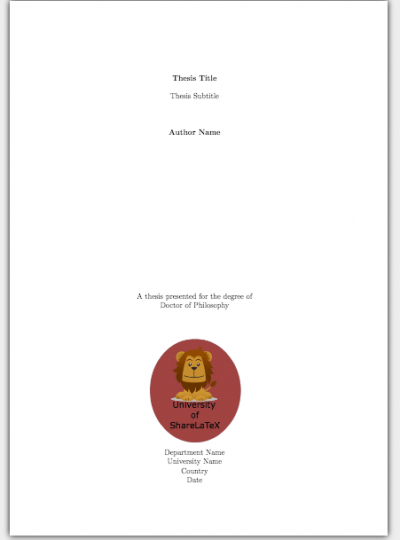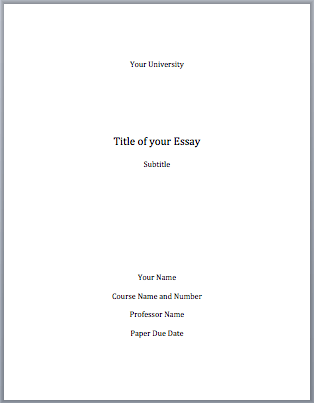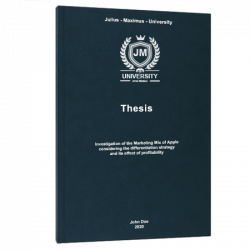Definition: Title Page
In its simplest form, a title page is something that gets put at the very start of an academic essay or paper. It is designed to be an indicator of the basic points of your project. The main components of any title page include your own name, the title of your essay and the name of the school, university or university in which you have written and are submitting the paper.
In the world of advanced academia, there are plenty of assignment requirements that a student needs to adhere to in order to get the best marks possible. It might not seem like it, but one of the most important of these smaller requirements is mastering the art of the title page.
FAQ's
Put simply, a title page is placed at the very front of an academic dissertation or thesis. Generally, a title page will contain all of the important information about your writing including the name of the project, the name of the author and the name of the institution that you are writing the paper with. There are different ways of formatting the title page depending on the institution.
In many cases at university and university level, you are going to be required to use a title page for all your extensive academic writing assignments. Tutors, professors and other staff members that evaluate your projects usually like to see a clear indication of the purpose and topic at the very beginning of your paper. It’s important that the thesis title displayed on the title page, represents your thesis statement and the contents of your paper.
A title page is the page that comes right at the very beginning of your paper, a page that only has the bare essentials like title, author’s name and institution name on it. A cover page, however, is something that often comes after the title page. It is an opportunity for the essay writer to pen a brief description of what the project is actually about and what it intends to explore.
A title page should always come before a cover page. This can easily be remembered with the solid rule that a title page should be the very first thing that is seen when you put together your essay pages. Be sure to check with your institution which formatting you’re required to use, as this will determine the margins and text size.
As long as you follow the guidelines that are attached to the style of essay or thesis format that your school or institution dictates, you shouldn’t have any trouble. Once you know the rules, creating a title page is the simplest part of your entire paper writing process.
Formats & Examples
Something to keep in mind when getting started on a title page is that there is more than one kind. There are three main formats in circulation when it comes to title pages, and the one that you are required to use is dictated by the specific essay writing format that your chosen institution prefers. Here is some information about title page requirements of the three main writing formats in modern academia.
APA Title Page
An APA Title Page should include:
– A running head.
– The first page number.
– The title of the paper, which should not exceed more than twelve words in length or contain any abbreviations.
– Your name as the author.
– The name of your academic institution.

MLA Title Page
A MLA Title Page should include:
– The title of your paper.
– Your name.
– Name of the class or course that the paper is for.
– Name of your professor.
– Date of your paper submission.

Latex Title Page
A Latex format title page should include:
– The title of your paper.
– Any subtitle that you might also use.
– Your name as the author.
– A line to explain which thesis or doctorate this paper is being submitted for.
– The graphic logo of your academic institution.
– Followed by department name, university name, country and date.

- ✓ 3D live preview of your individual configuration
- ✓ Free express delivery for every single purchase
- ✓ Top-notch bindings with customised embossing

Tips for a Good Title Page
A few extra tips for creating the best title page possible include:
- Don’t be too wordy on your title page. Keep your front page information to a bare minimum with only the essentials being listed.
- Make sure to double check with your professors and with the guidelines of your specific format that you are abiding by the line spacing rules. Some formats like double spaced, some formats like 1.5 spaced. It is important to make sure that you get all of these small details correct along with the appropriate wording.
- Don’t be tempted to capitalise words that don’t need to be capitalised. There is a tendency to put a capital letter in all words of a title page, but this isn’t necessary and is seen as bad grammar by the marker.
- Don’t treat the title page as simply an afterthought. Make the effort to print it on the same kind of paper, use the same font as the rest of your essay and use the same sized lettering as you have used in throughout your project.
In a Nutshell
Ultimately, you will be able to produce a perfect title page if you just follow these simple, nutshell instructions:
- Pay close attention to which of the three main formats your university is using and make the effort to abide by those rules specifically.
- Take the time to make sure that every single word on the title page is spelt correctly and placed correctly according to the structure and template.
- Pay close attention to the order in which you are required to place your lines on the page. It can vary from format to format and whilst it might not seem like a vital component compared to the content of your essay, it can lose your marks in the final grading.
As long as you stick to the strict guidelines and treat your title page in the same meticulous way that you would treat a bibliography or contents page, you should have no trouble at all with meeting the standard.

